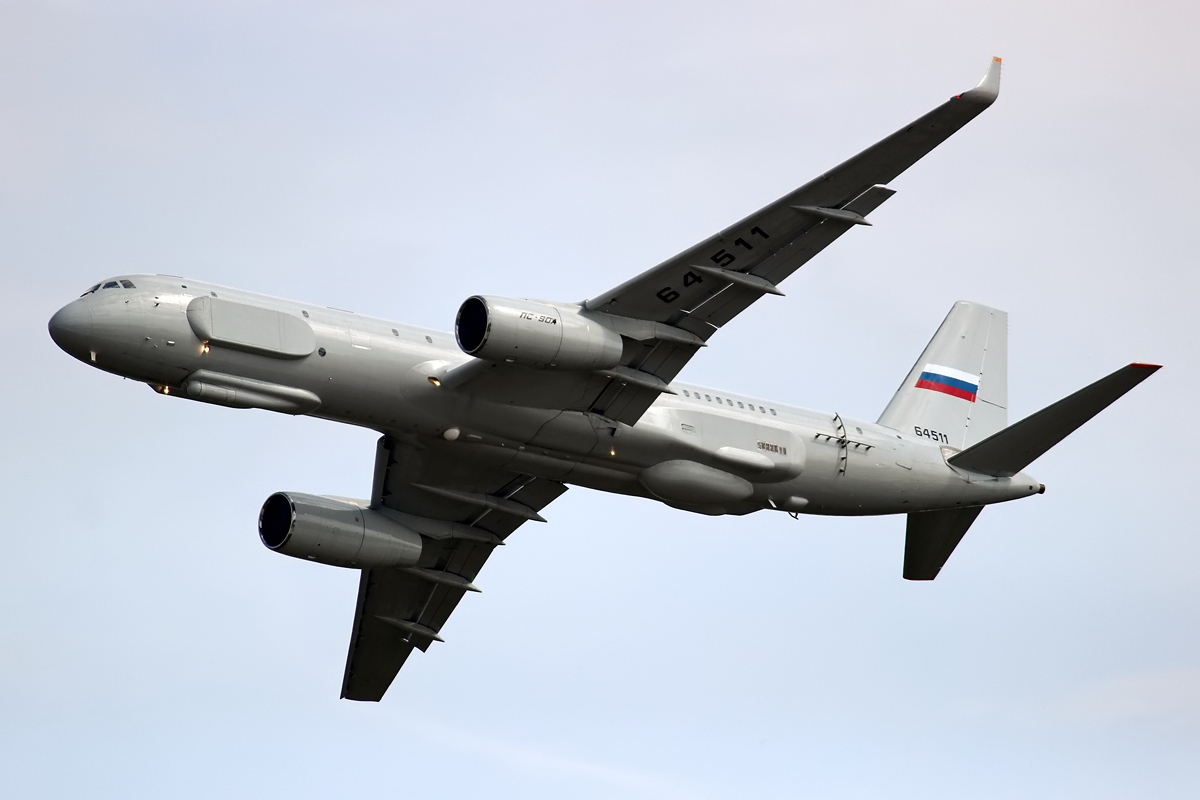Last week, the Russian military forces in Syria performed a break-in of their brand new Intelligence Surveillance Reconnaissance (ISR) aircraft.

Tu-214R inflight from Borisoglebskoye airfield (2014)
Edited by Desi Tzoneva
Rumours of a mysterious new Russian “spy”-jet began to surface in the mass media several months ago. According to the Regnum news agency, in February 2016, CNN with reference to a US official, reported that a new Russian ISR aircraft, the TU-214R, had reached the Russian military base in Latakia, Syria. According to CNN, American experts were impressed by the jet because it was equipped with all-weather radar systems and electro-optical sensors, which provide images similar to photographs. It was also mentioned that such equipment allows Russians to track US jets in Syria. Later, in July 2016, media agencies reported that a TU-214R was once again spotted in Syria with the help of an international flight tracker – Flightradar 24. However, it remains unknown whether this was the same jet mentioned by CNN or whether it was another one. Nevertheless, the Russian Defence Ministry is likely to accept the efficiency of the practical use of the TU-214R during combat operations in Syria. All the tasks were fulfilled and the jet showed itself to be a reliable aircraft. Russian officials consider the jet to be completely ready for combat. Meanwhile, it was initially not meant to be a military machine.
The ISR aircraft, the TU-214R, is based on a civil aircraft, the TU-214, which was an upgraded model of a medium-range airliner, the TU-204. This plane was developed at the end of the 80s and was meant to substitute the TU-154, which was the main Soviet passenger aircraft at that time.
The TU-204 looked completely different to the modern planes we have become accustomed to. It had three engines and an “over-dimensioned” two-deck hull. This was probably made for better reaction to seasonal fluctuation of passenger traffic flow, by changing the share of the passenger and cargo load. The TU-204 was based on the most modern solution in the aircraft industry of that time. The plane was equipped with an electro-digital engine operation system, digital calculated machinery and other modern equipment. The construction of TU-204 included aluminium alloys with improved physical and mechanical characteristics, glass carbon plastic composite materials and hybrid materials, amongst others. Even today, the TU-204 is considered to be one of the few long-range aircraft whose wings do not require an anti-icing system.
The serial production of TU-204 was launched in 1990 at “Aviastar-SP”, a Russian aircraft factory base in the city of Ulyanovsk. Since then, around 80 planes have been built. However, the TU-204 failed to substitute the TU-154. The 90s were very difficult in Russia and the national aircraft industry was not an exception.
The TU-204 is considered to be the “grandfather” of the modern ISR aircraft, TU-214R, while its “father” was the TU -214, which had improved take-off weight and a maximum payload capacity. The first planes were produced in 1996 at “Aviastar-SP” in Ulyanovsk. Then, in 1997, production was moved to the Kazan Aircraft Production Association. The first purchaser for the TU-214 was a Khabarovsk-based air company, which proved the plane’s efficiency over extended distances. However, starting from April 2010, the production of the civil version of the TU-214 was cancelled. The plane was used as a base for developing special aircraft like the TU-214SR airborne relay aircraft, the ТU-214PU, flying command posts and the ТU-214SUS, flying communication centres. All these special-task aircraft were ordered directly by the Russian President, Vladimir Putin.
Returning to the ISR aircraft, the ТU-214R, a 3.4 billion Russian rouble contract was signed in 2002. According to this contract, the first reconnaissance jets should have been delivered to the Russian Defence Ministry by November 2008. However, this did not happen. The first ТU-214R was ready only in 2009 and experienced certain legal problems, which were subsequently resolved.
It is known that ТU-214R aircraft avionics include a multi-frequency radio-technical complex – MRK-411 – which consists of several side- and all-around looking radars as well as other special machinery. In other words, the TU-214R is equipped with top-secret, brand new technologies which allow it to identify not only land objects, but also hidden objects several dozen metres underground at any time.
After the TU-214R success in Syria, the Russian Defence Ministry requested the production of another TU-214R.





